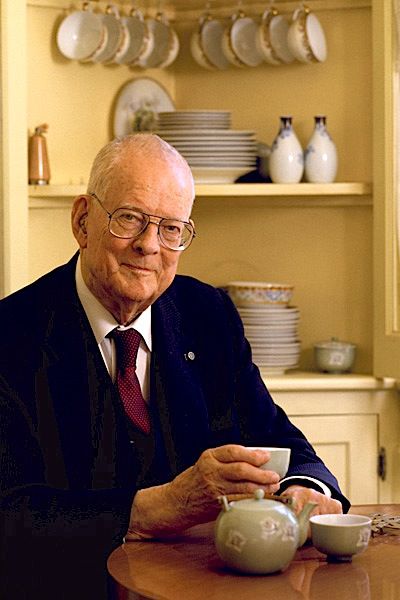
“Quality comes not from inspection, but from improvement of the production process.â€
-Dr. W. Edwards Deming
W. Edwards Deming, an American mathematical physicist, statistician, professor, author and management consultant, is considered to be the Father of Quality Evolution. He is famously known for his work on quality management and for his contributions such as the plan-do-check-act cycle or the Deming wheel. Another of his well-known contribution is his 14 points for management which Deming discussed in his book “Out of the Crisis†which was published in 1986. 14 points is Deming’s 50 years of experience condensed in 14 concepts. While many see them as guide to product and process improvement, they also reflect the process for innovation. 14 points can be applied to any type of organization – big or small, service or manufacturing industries, etc. They can be applied to any process within a company.
- Create constancy of purpose toward improvement of product and service, with the aim to become competitive and to stay in business, and to provide jobs.
- Adopt the new philosophy. We are in a new economic age. Western management must awaken to the challenge, must learn their responsibilities, and take on leadership for change.
- Cease dependence on inspection to achieve quality. Eliminate the need for inspection on a mass basis by building quality into the product in the first place.
- End the practice of awarding business on the basis of price tag. Instead, minimize total cost. Move toward a single supplier for any one item, on a long-term relationship of loyalty and trust.
- Improve constantly and forever the system of production and service, to improve quality and productivity, and thus constantly decrease costs.
- Institute training on the job.
- Institute leadership. The aim of supervision should be to help people and machines and gadgets to do a better job. Supervision of management is in need of overhaul, as well as supervision of production workers.
- Drive out fear, so that everyone may work effectively for the company.
- Break down barriers between departments. People in research, design, sales, and production must work as a team, to foresee problems of production and in use that may be encountered with the product or service.
- Eliminate slogans, exhortations, and targets for the workforce, asking for zero defects and new levels of productivity. Such exhortations only create adversarial relationships, as the bulk of the causes of low quality and low productivity belong to the system and thus lie beyond the power of the workforce.
- Eliminate work standards (quotas) on the factory floor. Substitute leadership.
- Eliminate management by objective. Eliminate management by numbers, numerical goals. Substitute leadership.
- Remove barriers that rob the hourly worker of his right to pride of workmanship. The responsibility of supervisors must be changed from sheer numbers to quality.
- Remove barriers that rob people in management and in engineering of their right to pride of workmanship. This means, inter alia, abolishment of the annual or merit rating and of management by objective
- Institute a vigorous program of education and self-improvement.
- Put everybody in the company to work to accomplish the transformation. The transformation is everybody’s job.
Many of his principles were philosophical, while others are programmatic. But it is without doubt that all are transformative in nature. The central idea behind Deming’s philosophy is that variation is the biggest bottleneck towards productivity. If organizations subscribe to 14 points, Deming argues, that they will be able to reduce variations and thus, improve their performance and competitiveness. It is worthy to note that 14 points did not provide specific tools in implementation. Deming posited that the organizations themselves should develop the means to successfully implement them according to their own situation and needs. Decades after its publication, the concept and ideas 14 Points still resonate and following these points will surely lead any organization to a culture that encourages and celebrates new ideas.
